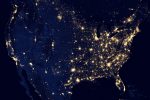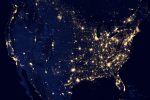Consider Horde Mentality in Your Planning – Part 1, by Ani

As a prepper for many years, I’ve put some consideration into trying to understand the mentality of the “hordes” who might be forced to leave their cities and heavily populated suburbs, in the event of a major disaster. I think that while we may not know how things are going to unfold or what sort of disaster might provoke people into leaving and essentially becoming refugees, we can consider some of the more likely to occur scenarios. Doing this will let us examine how well-situated we are in our own homes, the risks that we might be most susceptible to, and actions that we could take. And if you’re reading this and still living in a city or heavily populated suburb, well, then this is also for you.
 So as someone who has lived my entire life thusfar in the heavily-populated eastern part of the US, I already know that wherever I may live here I’m at a higher level of risk than say someone living in a sparsely populated area of Idaho or Wyoming. One only has to take a look at those really amazing night sky maps of the US such to really get the picture of the difference in population numbers and density across the country.
So as someone who has lived my entire life thusfar in the heavily-populated eastern part of the US, I already know that wherever I may live here I’m at a higher level of risk than say someone living in a sparsely populated area of Idaho or Wyoming. One only has to take a look at those really amazing night sky maps of the US such to really get the picture of the difference in population numbers and density across the country.
In general, more cities and more population isn’t a good thing if TSHTF. So why, knowing this, am I still here? For me as for many people, the reasons vary but mostly have to do with family commitments, money, and the difficulty of a long distance relocation. I’ve seriously considered moving to an area such as the “American Redoubt” not just for prepper reasons but also for the wide open spaces and lower population levels as well as the generally Conservative politics which I prefer. I’ve realized though that it’s just not feasible due to family here plus the costs of land and housing there which are beyond my means. So I’m here in the east and have to make the best of it. I suspect many of you are in the same boat. That is: Knowing what you might prefer to do but facing up to the reality of the factors keeping you tied down where you are.
With that said, there are places, even in the eastern part of the US that are more rural, have more like-minded people around who actually know how to do “stuff”, lower population densities, etc. Now I no longer need to consider the local schools but still have to take into account the other things such as road conditions, ways to earn money, and so forth. I also prefer to not be too far away from my son. That way it would be relatively easily for him to make it to my house, in times of need.
My Criteria
When I was looking for a home and land to buy recently (having sold my former hoouse) I kept these thoughts in mind: I’m very limited in terms of cost and home prices have increased at a rapid pace here. I’m in Vermont which seems to be a favorite place for people to relocate to or often, these days, to buy a second home in which they can vacation at and otherwise rent out through AirBnB and other short-term rental sites. This has had the effect of driving up costs in any area that out-of-staters perceive to be “desirable”, scenic, on a pond or lake, etc. Unfortunately, some of the things that they desire are also those that would be a plus for one looking for a home/land with preparedness in mind.
I previously wrote in greater detail about my home search and what I was looking for so I won’t enumerate that in detail again here. In general though: I was searching for a home with enough land for a garden, some woods, reasonable privacy not on a main road, not too close to the interstate and that sort of thing. I mostly focused on central and northern Vermont as this has been where I’ve lived for decades although if I didn’t find something here I was going to look at rural Maine. Other than rural northern New Hampshire, I do think that these may well be the only places left in this part of the country that are still rural enough, and with a low enough population density. The western portion of North Carolina, parts of Tennessee and that area (Appalachia) is also another possibility and has previously been written about by others here in SurvivalBlog.
The Horde Mentality
So anyway, now to consider how the mentality of the “hordes” plays into where we choose to live. I call this “Horde Think.” Back in the late 1990s, when there was a lot of fear over Y2K, it was very interesting to read what people were posting online. There were of course then far fewer web sites devoted to preparedness but they did exist. I think I could sum up the thinking of the unprepared city/suburban people who posted as mostly” “I’ll just head into the country and find some land to start a garden”, “I’ll just head to the woods and shoot Bambi”, “I’ll just find a Mormon family and help myself to what they have.” (Ditto for Amish families.)
Reading these thoughts as to how they were going to find a way to house themselves and eat if a disaster struck, I was appalled by their absolute lack of knowledge and assumptions. One big assumption of course was that they had a way to get to “the country”. Another big assumption was that all of this land “out there” didn’t already belong to someone who might well have an issue with them planning on using it to garden or hunt. I think that many who live in urban/suburban areas view the fields and woods of rural locales as public land. They don’t conceive of this land as being privately owned by those who pay a mortgage, taxes, and upkeep on it who will likely have problems with strangers showing up.
Another big assumption of course was that someone whose only experience growing things might be the petunias in their hanging flower basket or mowing their suburban lawn was just going to magically grow enough food for themselves and their family. Ditto for being able to hunt or fish for the bulk of one’s food. Wild-crafting in the woods for those who haven’t a clue falls into the same category. Still, it was interesting to know what many of these people were thinking. I suspect not much has changed in this regard since then except that there are even more people now in adulthood who only know how to do “stuff” using their phone and an “app”.
So knowing all of this, where might be a greater danger from the “hordes” fleeing the city and when might this happen? Much has been written on the path (“lines of drift”) that urbanites might take to flee the city. Some of this of course depends on if they are fleeing in cars/trucks, or on foot, or on bikes. A situation such as an EMP would be quite different than one where people had motorized transport and access to fuel.
The only situation where I’d want to assume that most would be on foot would be that of an EMP where most vehicles were inoperable or a disaster which made the roads impassable by cars such as a major earthquake. So in the event of other disasters such as prolonged power failures, a pandemic, civil unrest, severe economic distress etc., I think I’d assume that many would have the means to at least get one tank of gas away from the city or suburbs. This then means that there could indeed be hordes of people in vehicles fleeing the city and heading out to their idea of perceived safety in rural areas.
Where Will the Horde Be Heading?
So which kinds of rural settings will they be looking to access? I’ve been considering this to some degree as I think that not all rural areas will be as much at risk as others, even in the east. Some of this depends on where people are coming from. It also depends on the time of year. Those fleeing New York City or Boston for instance would likely head north to the perceived safety of rural New Hampshire, Vermont, and Maine. But if this was in winter, I’m not so sure of that. Even city people know how cold and snowy it gets there. If people were on foot, I doubt they’d attempt this in the winter. But if by car, then I think many would.
I suspect that whatever the season, many would have in mind that they would find a vacant “camp” or vacation home, all set up with a wood burning stove, firewood, and food that they could break in to. Some might go in search of the vacation home that they previously rented. This could get interesting given how many of these homes are rented out by the week every year and how many people that would add up to. [JWR Adds: Just imagine how many “Time Share” co-owners will show up to simultaneously claim the same property. That is a tasty recipe for a gunfight.]
Some might head to the state, private or US government campground where they stayed previously on a camping trip. They would assume that this would be a safe place to be and there is (was) running water, toilets, showers, ponds etc to avail themselves of, at least in the camping season. Again, just considering how many times each campsite is rented out during the camping season over just 10 or 20 years, that’s an astounding number of people. They all might have fond memories of their camping trip spent on tent-site #26 who would decide that this could be their exclusive place of refuge.
This then means that any place which currently has lots of vacation homes or campgrounds may well be at risk of having a whole lot of people descend upon this area all thinking that they alone had this brilliant idea. The prospect of a whole bunch of ill-prepared city people all duking it out over a vacation home or campsite that doesn’t even belong to them isn’t pleasant. Many of them will likely end up needing to find a place to stay in the general area as someone else beat them to it first and they can’t go “back home” again to the city. This then would result in areas that have many vacation homes or campgrounds needing to cope with the overflow. If a disaster should happen at a time of year when the campgrounds/vacation homes were already occupied, then this could get even worse. And if I were a second home owner, I wouldn’t want to count on being able to occupy it if I weren’t there first, and suitably armed to defend my ownership rights.
(To be concluded tomorrow, in Part 2.)
